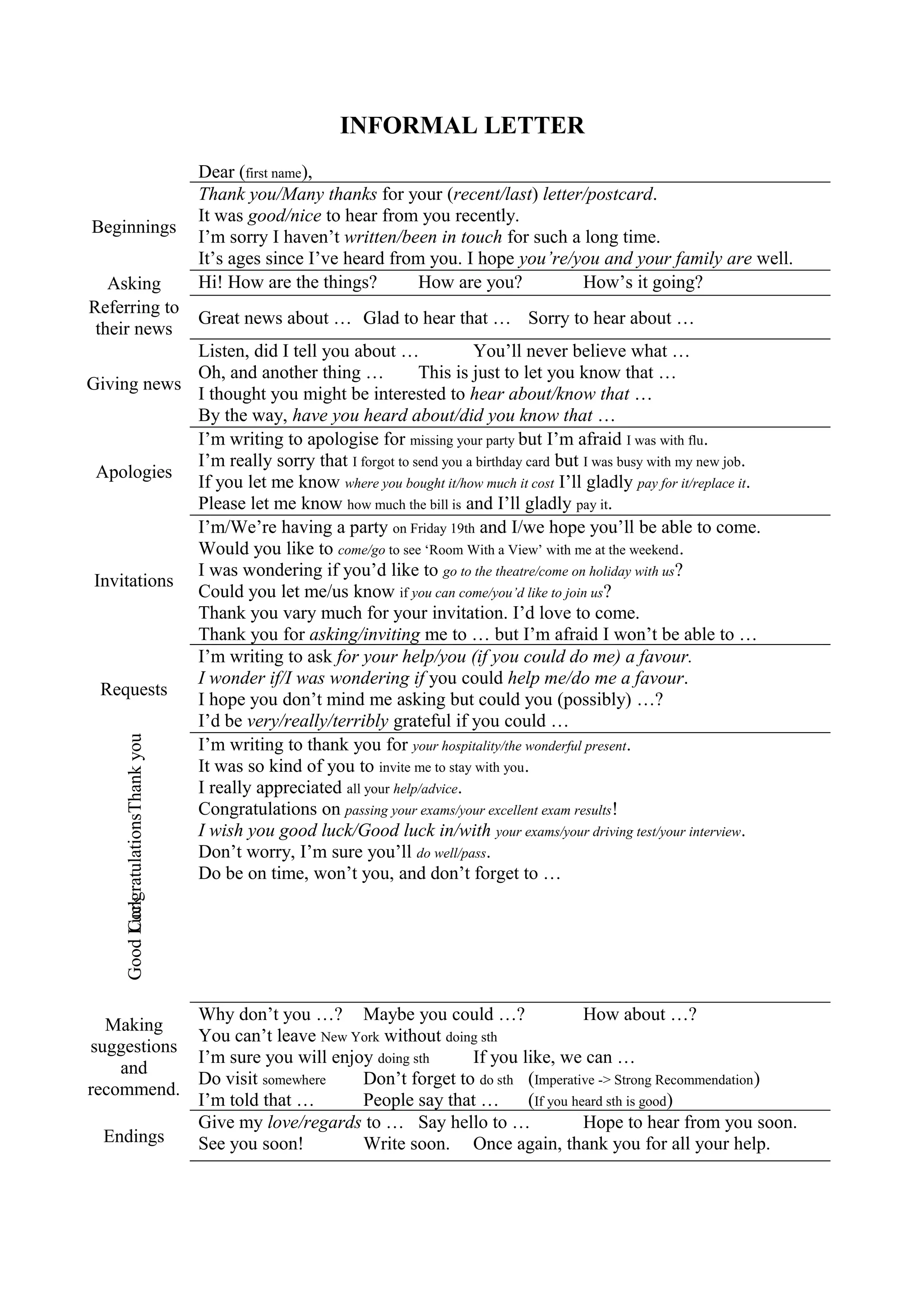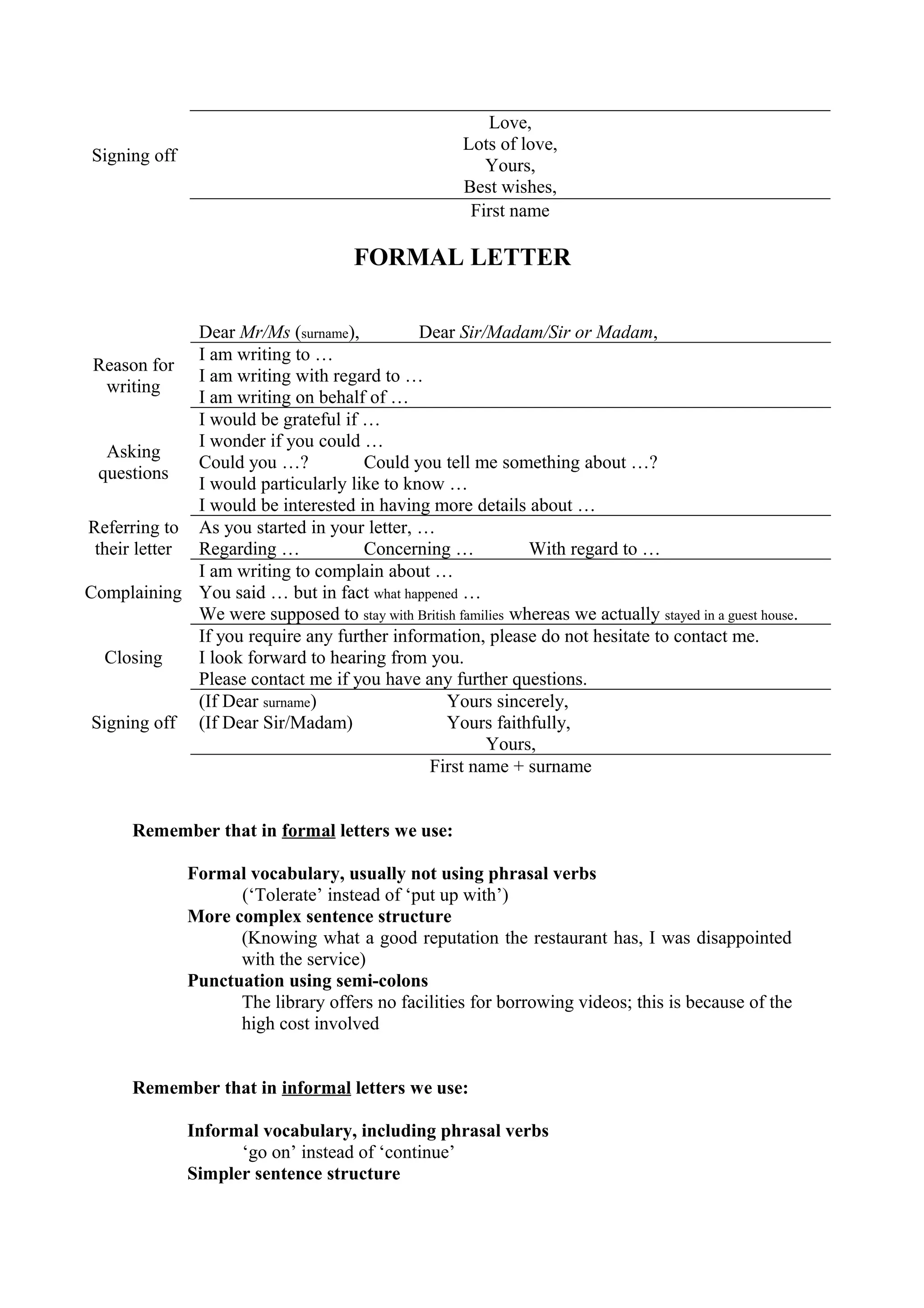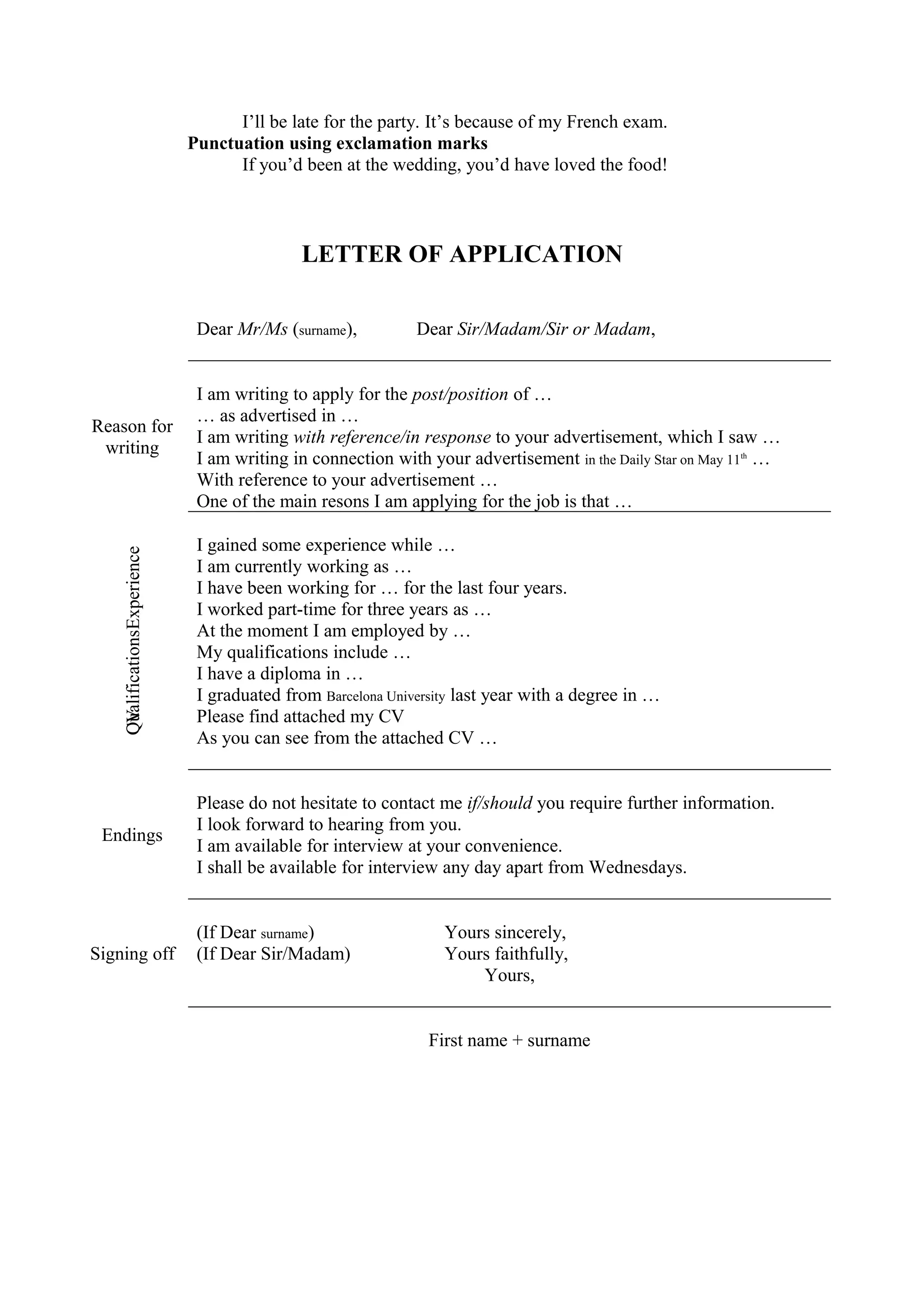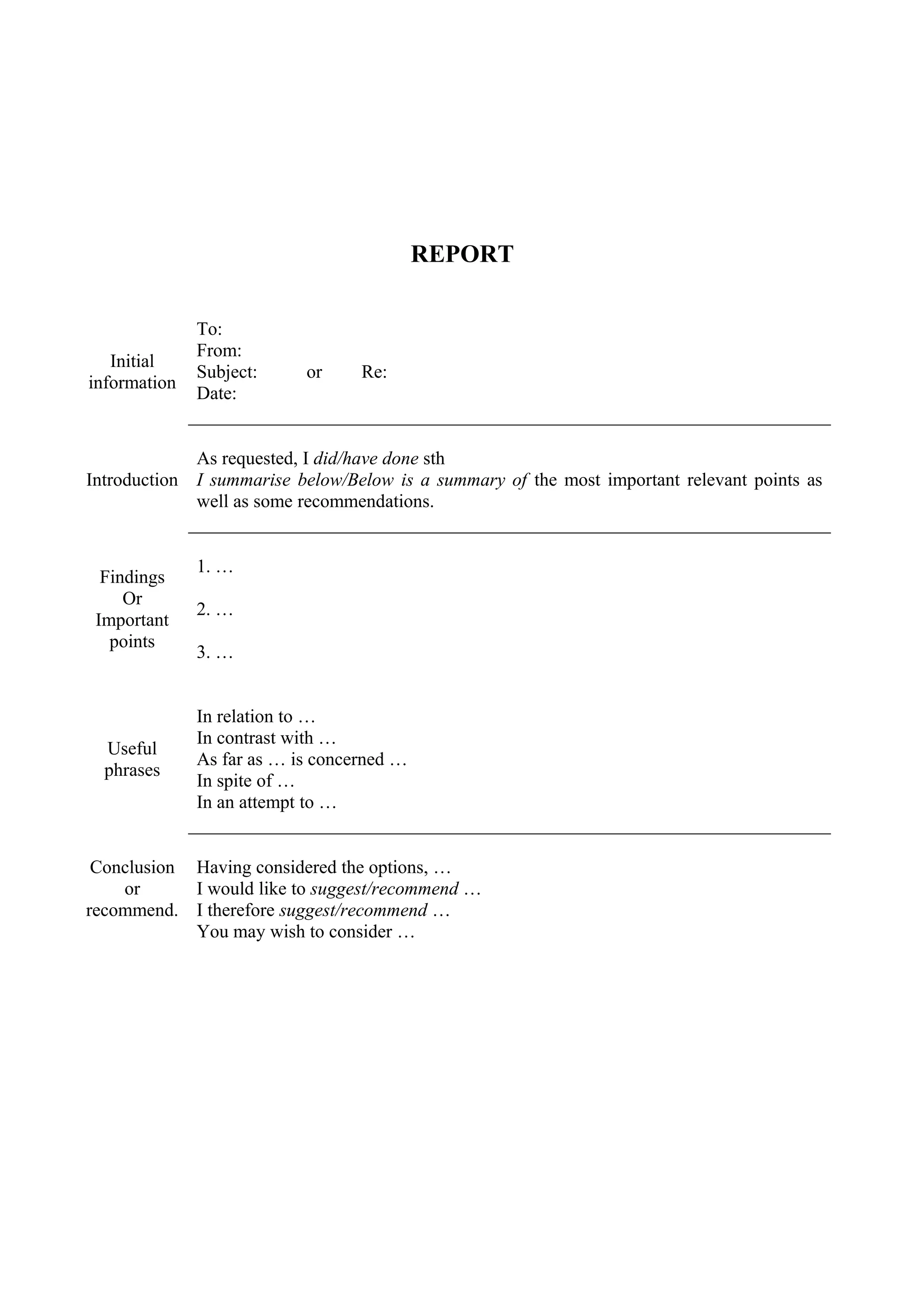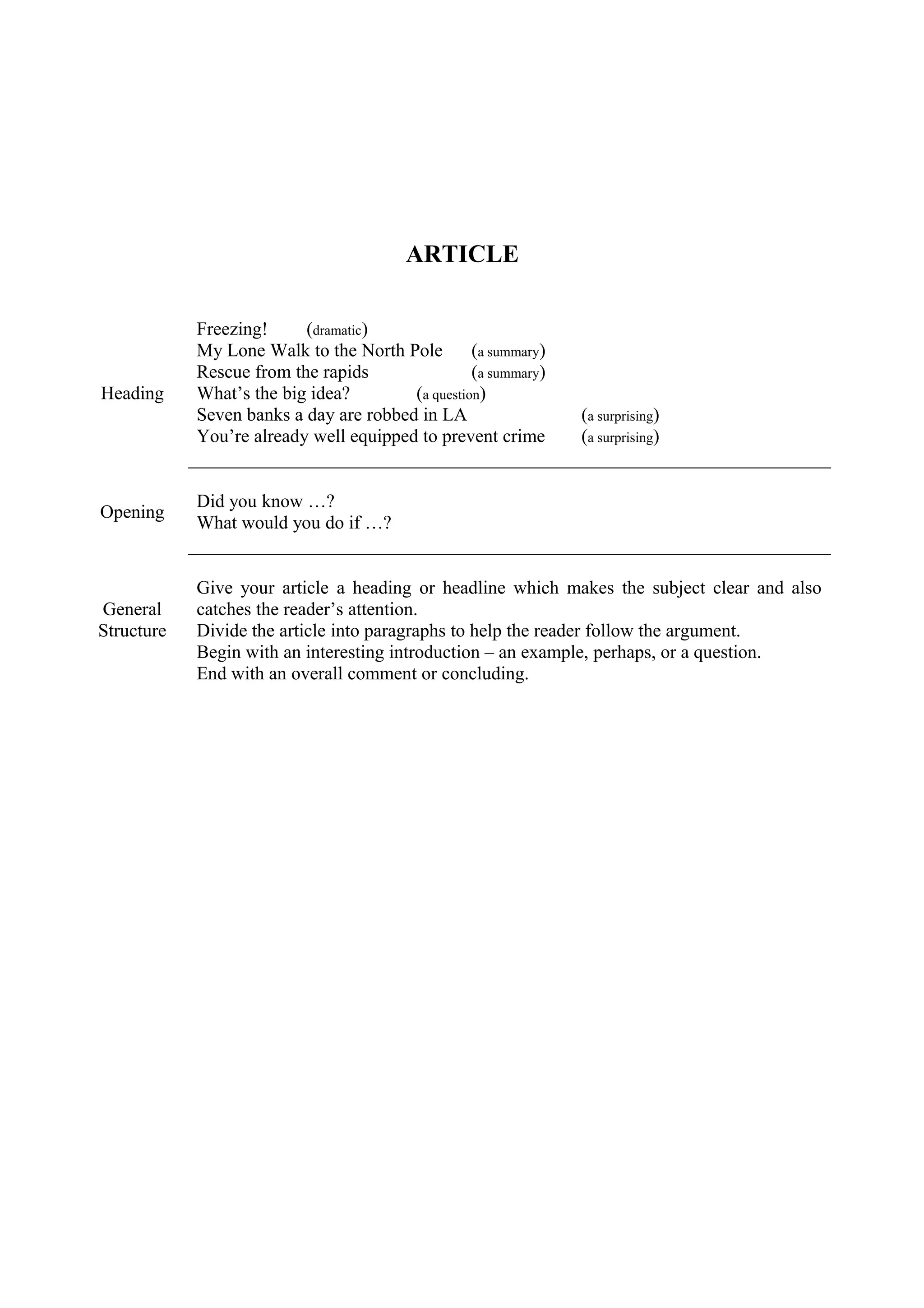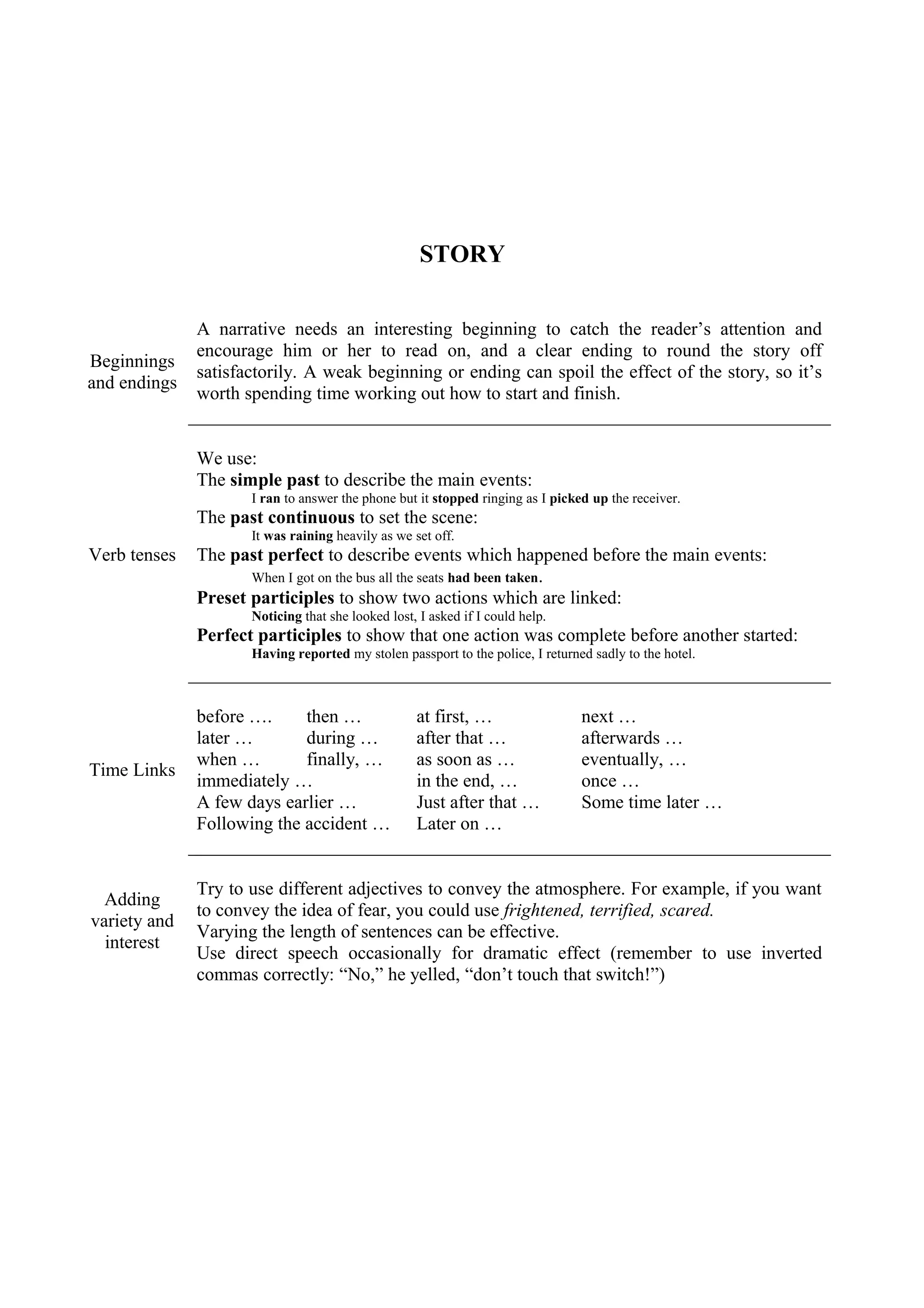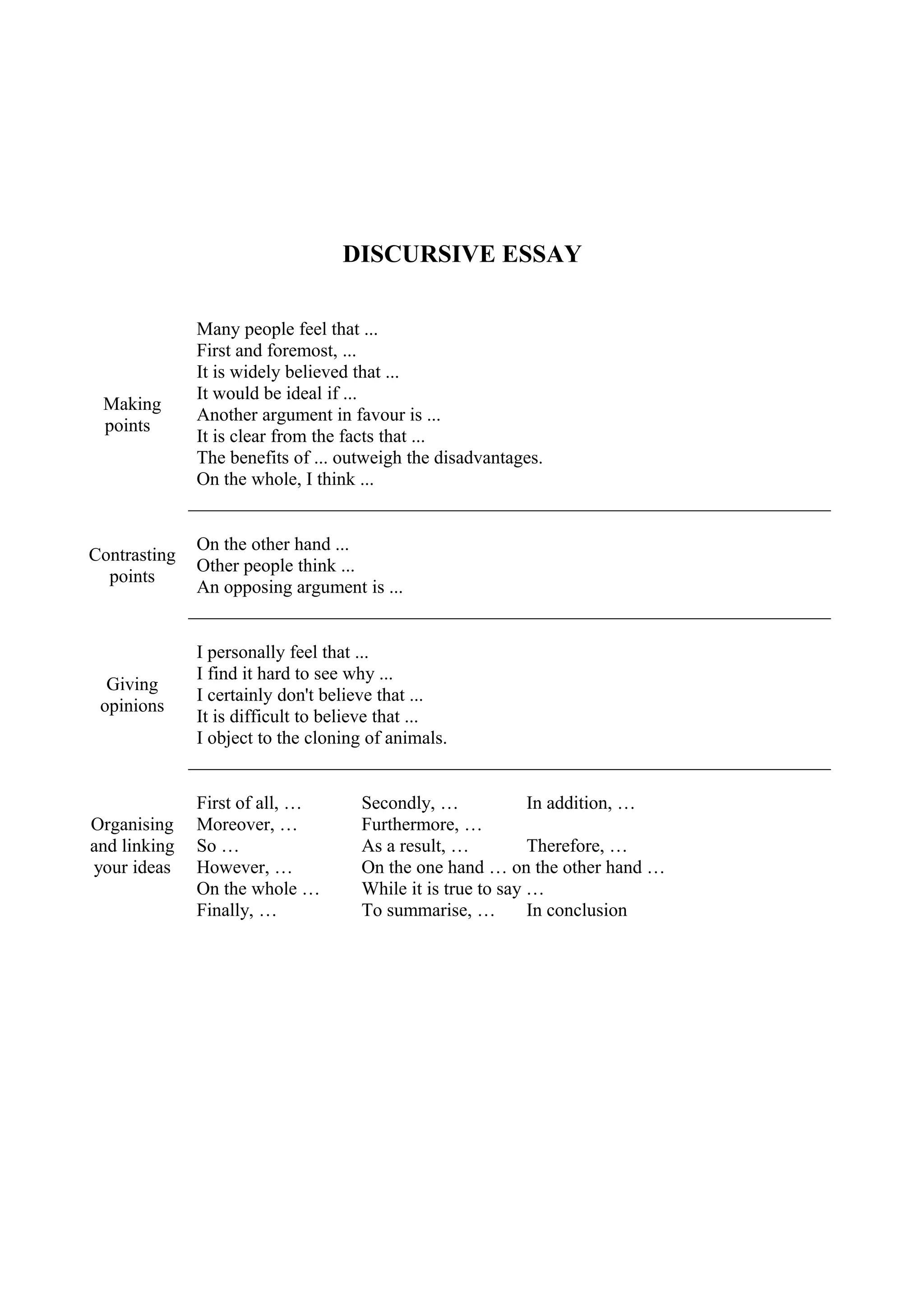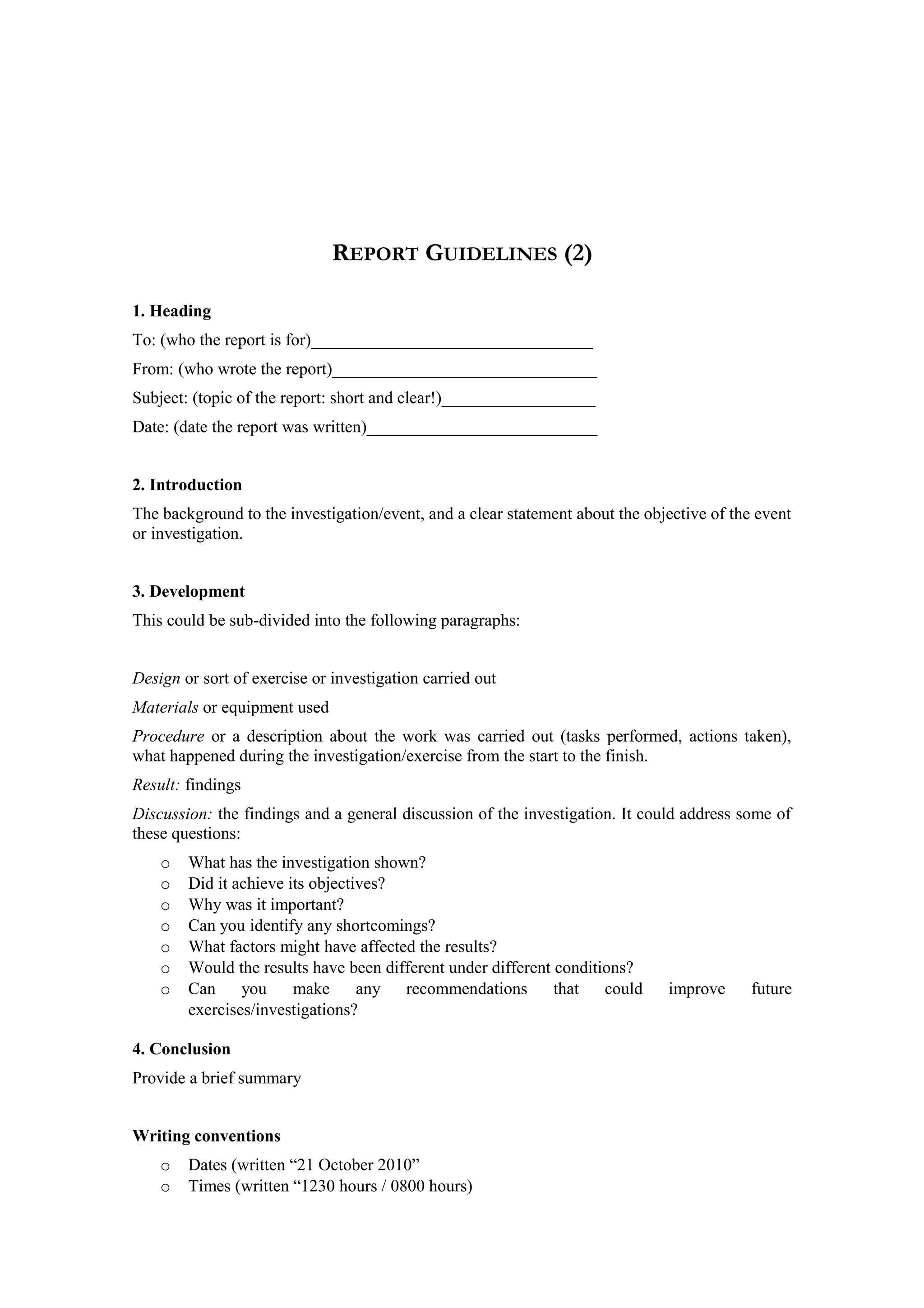This document provides guidelines for writing different types of letters and reports. It includes sections on informal letters, formal letters, letters of application, reports, articles, stories, and discursive essays. For each format, it lists common elements and structures to include as well as useful phrases, vocabulary, and punctuation conventions.
